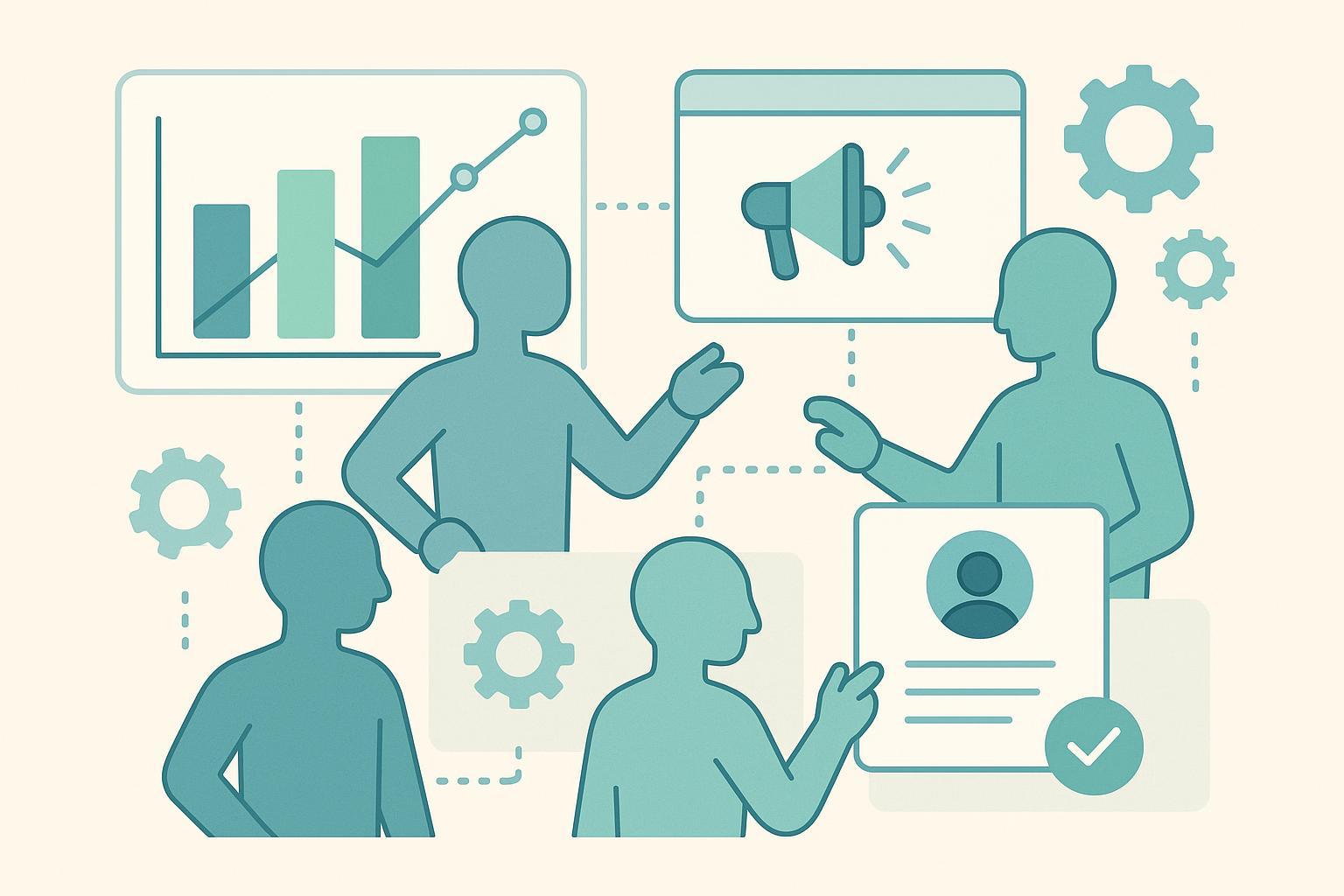What Are AI Agents for Marketing? Definition, Principles, and Practical Applications

Definition: What Is an AI Agent for Marketing?
AI Agents for Marketing are autonomous software entities powered by artificial intelligence and machine learning, designed to automate, optimize, and personalize digital marketing activities. According to Salesforce, these agents can independently or collaboratively execute processes like campaign management, content creation, and customer journey analysis, helping marketers achieve specific business objectives. LiveRamp describes AI agents as intelligent digital assistants that handle repetitive, data-driven tasks such as segmentation, customization, and analytics—at scale.
How Do AI Agents Work?
An AI agent typically operates through a closed-loop workflow:
- Data ingestion: Collects customer signals and marketing metrics from various platforms.
- Analysis: Processes and analyzes this data using machine learning and natural language processing (NLP).
- Decision-making: Chooses the optimal marketing action, such as personalizing content or adjusting ad bids.
- Action & Measurement: Executes campaigns and continuously monitors results.
- Feedback & Learning: Learns from performance data to refine future decisions, creating an adaptive cycle.
Advanced agents can integrate with CRM systems, content management platforms, and ad delivery engines, and may support human oversight for strategic decisions (IBM).
Types of AI Agents in Marketing
| Type | Function | Distinguishing Feature |
|---|---|---|
| Agentic | Autonomous decision-making, optimization | Goal-driven workflows |
| Generative | Creative content generation | Synthesizes new text, visuals, etc. |
| Predictive | Forecasting campaign/results | Advanced pattern recognition |
Most real-world systems blend these approaches for holistic automation.
Key Marketing Applications & Real-World Examples
- Automated Content Creation: Generate blog articles, social posts, or targeted emails with context-sensitive adaptation (e.g., Salesforce Einstein personalizes email content for millions of users).
- Campaign Orchestration: Manage multi-channel marketing campaigns, dynamically segment audiences, and optimize delivery timing (Demandbase ABM AI Agents streamline B2B workflows).
- Personalization Engines: Recommend products or offers to users in real time, refining recommendations as new data arrives (Leading retailers use agents for omnichannel personalization).
- Analytics & Performance Reporting: Automate A/B testing, journey mapping, and actionable insights generation—freeing marketers to focus on strategy.
- Advanced Scenarios: Hospitality brands use agents for seasonally-adjusted promotions; e-commerce teams combine creative testing with inventory-based targeting.
How Are AI Agents Different from Other Marketing Technologies?
Chatbots specialize in conversational interfaces; personalization engines focus on user profiling; marketing automation platforms handle predefined workflows. In contrast, AI agents autonomously optimize, adapt, and integrate across tasks and workflows:
- AI Agent: Self-learning, multi-step, goal-oriented, adaptive
- Chatbot: Reactive, limited dialog management
- Personalization Engine: Rule/ML-based, focused on content/offers
- Automation Platform: Preprogrammed, limited adaptability
Best Practices for Integrating AI Agents
- Start simple: Automate task-level processes (segmentation, campaign execution)
- Scale up: Move to multi-channel orchestration and autonomous campaign management
- Integrate feedback cycles: Track engagement and conversions to continuously improve agent performance
- Prioritize human oversight: Use human-in-the-loop for critical decision points
- Monitor risks: Guard against over-automation; maintain creativity and UX quality
Suggested Visual: Diagram of a closed-loop agent workflow showing data flow, decision, action, and feedback.
Future Outlook
AI agents will continue evolving—enabling real-time collaboration, cross-platform integration, and heightened personalization. As agents become more context-aware and autonomous, their impact on marketing efficiency and ROI will only accelerate.
References:

